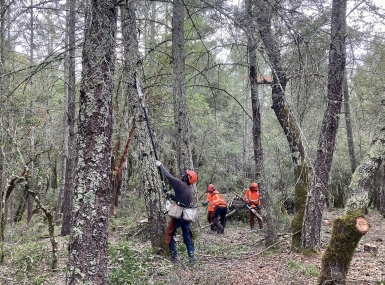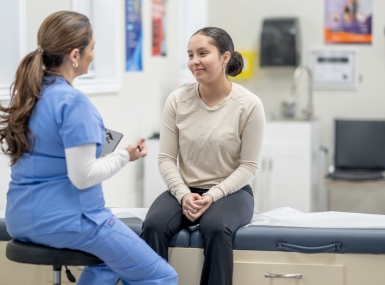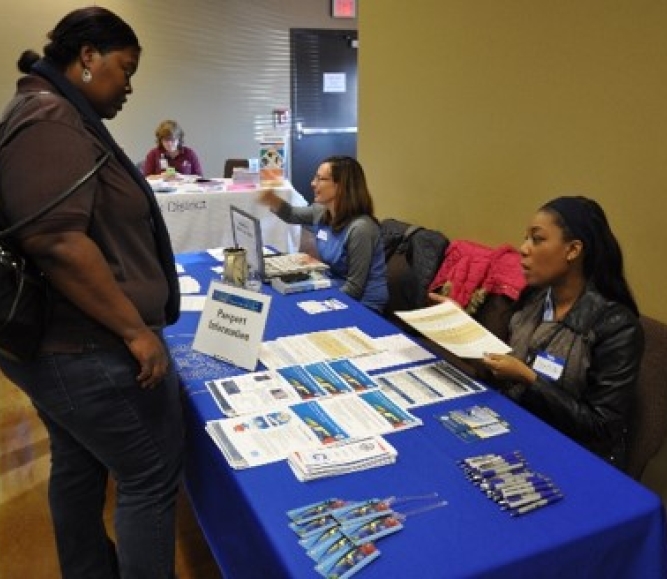Counties support youth with a second chance opportunity

Key Takeaways
Riverside County, Calif. Supervisor Yxstain Gutierrez developed a one-of-a-kind program to address a gap in his community.
In his previous occupation of 14 years as a teacher, Gutierrez saw his students who entered the juvenile justice system have little to no opportunities upon release. Gutierrez recalls students used to ask, “Dr. G. is there anything out there?” and upon doing research, he was never able to find sufficient resources for them. Having personally seen his former students never get a second chance motivated the supervisor to establish this new program.
Learn more
America’s counties are positioned to support residents by providing opportunities for growth and development. Opportunities when present give individuals the best chance to achieve better outcomes. Thus, counties have excelled at filling gaps of opportunity that exist within their communities to best serve their residents. For example, counties can offer justice-impacted individuals a second chance that would otherwise not exist.
The period immediately following incarceration can be challenging for an individual. Justice-impacted individuals can often face barriers such as housing insecurity, inability to access health care and social services, financial strain, food insecurity and challenges to obtaining gainful employment. During this time of instability, a county lifeline can be the difference maker to ensure successful reentry. NACo recognizes April as Second Chance Month. This month-long observation is a reflection on the importance of supporting individuals after time spent incarcerated.
In December 2024, Riverside County, Calif. launched the Second Chance Program, which offers employment and wrap around services to youth who are either in the juvenile justice system or at risk of going into the system. The program partners with employers to hire formerly incarcerated or justice-involved individuals from ages 16-24 by subsidizing wages for up to 90 days. Participants work for $16 per hour, 20 hours per week for the community-based employer. Mentors help them navigate challenges and reach self-sufficiency, job training and wraparound services tailored to their specific needs.
The Second Chance Program has seen positive community support and has a participant retention rate of nearly 90 percent. The goal of the three-month program is for participants to continue with their employer or find new employment with the newly acquired experience. Longterm, Riverside County is hopefully the program will improve public safety by reducing recidivism. Gutierrez said the program is really changing kids’ lives. “Some of these kids didn’t have an opportunity and this program is giving them that opportunity” he said.
"I believe that with the right mentorship and support, our misguided youth can rewrite their story for the better," he said. "By empowering justice involved youth with opportunities for employment and reintegration into society we can show them that their past does not decide their future. We can not only help them change their lives but also improve the safety and resilience of our communities."
Related News

FEMA halts disaster mitigation grant program
On April 4, the Federal Emergency Management Agency (FEMA) announced it will not allocate $750 million this year for the Building Resilient Infrastructure and Communities (BRIC) grant program. According to the press release, FEMA will also stop funding BRIC projects that were previously approved and are still underway.

White House signs executive order examining state and local preparedness
On March 18, President Trump signed an Executive Order aimed at aligning federal preparedness and response doctrines, while examining state and local preparedness capabilities. The order does not shift any responsibilities or costs to state and local governments, rather producing a set of recommendations for better collaboration across all levels of government.

CMS announces extended funding application period to improve the continuity of care for justice-involved individuals
On September 27, the Centers for Medicare & Medicaid Services announced $106.5 million in state planning grants aimed at improving healthcare continuity for individuals transitioning from incarceration.
County News
Counties offer clean slates for second chances

